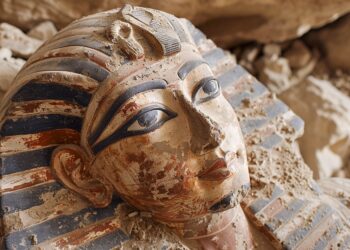Do you wish to improve your reading comprehension? This article in plain English is ideal for you. Today, as you practice your reading comprehension skills, we’ll learn about countries—what they are, why they are important, and some fascinating facts about various nations.
What is a Nation?
Any place on Earth where people live under the same government is called a country. A nation has its own laws, borders, and frequently its own language and culture. Nations are another name for countries.
Every nation has:
-
A flag
-
A national anthem
-
A capital city
-
A group of citizens (the people who live there)
Today, there are roughly 195 nations in the world. Some are very small, like Vatican City, and some are very large, like Russia.
What Constitutes a Nation?
A location is referred to as a country if it possesses:
-
A government – made up of individuals who enact laws.
-
A population – people who reside there.
-
A territory – piece of land that has boundaries.
-
Recognition – It is acknowledged as a nation by other nations.
Japan, Brazil, and Canada, for instance, are all considered nations since they each have their own territory, citizens, legal systems, and flags. Gaining knowledge of this aids in the development of reading comprehension and global concepts.
What Makes Nations Different?
Each nation differs in:
- Language: Spanish is spoken in Spain, French is spoken in France, and Japanese is spoken in Japan.
- Food: Pasta and pizza are popular in Italy. Spicy curry is consumed in India. They like tacos and burritos in Mexico.
- Culture: Every nation has its own unique music, attire, artwork, and holidays.
- Weather: Norway is cold, while Egypt is hot.
- Nature: Some nations feature deserts, mountains, beaches, or forests.
All of this helps you learn and make connections between concepts, which enhances your reading comprehension.
World-famous Nations
You may be familiar with the following well-known nations:
-
United States
-
Capital: Washington, D.C.
-
Language: English
-
Known for: Hollywood, technology, and famous cities like New York.
-
-
Japan
-
Capital: Tokyo
-
Language: Japanese
-
Known for: Technology, Mount Fuji, sushi, and anime.
-
-
Brazil
-
Capital: Brasília
-
Language: Portuguese
-
Known for: Carnival, football (soccer), Amazon rainforest.
-
-
France
-
Capital: Paris
-
Language: French
-
Known for: The Eiffel Tower, art, and delicious food.
-
-
Australia
-
Capital: Canberra
-
Language: English
-
Known for: Kangaroos, beaches, and the Great Barrier Reef.
-
🗺 Nations by Continent
Each of the seven continents that make up the world is home to numerous nations.
| Continent | Number of Countries | Examples |
|---|---|---|
| Asia | 49 | China, India, Japan |
| Africa | 54 | Nigeria, Egypt, South Africa |
| Europe | 44 | France, Germany, Italy |
| North America | 23 | USA, Mexico, Canada |
| South America | 12 | Brazil, Argentina, Chile |
| Australia/Oceania | 14 | Australia, New Zealand |
| Antarctica | 0 (No countries) | Research stations only |
Why Nations Matter?
The world is organized in part by nations. They protect their citizens, enact laws, and offer healthcare and education. In organizations like the United Nations (UN), nations collaborate to address issues like global health, peace, and climate change.
Nations also encourage economic development and cross-cultural interaction. They enter into agreements to promote tourism, exchange technology, and trade goods. Through collaboration, nations can enhance their economies, gain knowledge from one another, and forge solid bonds that contribute to a more interconnected and tranquil global community.
Interesting Facts About Nations
-
Russia is the biggest country in the world.
-
Vatican City is the smallest country. It is inside Rome, Italy.
-
China has one of the largest population, over 1.4 billion people.
-
Canada has the most lakes in the world.
-
Nepal is home to Mount Everest, the highest mountain.
Gaining knowledge of interesting facts is a terrific method to improve your vocabulary and reading comprehension.
Which nation are you interested in visiting?
With its many different nations, cultures, and landscapes, the world is an amazing place. With distinct languages, customs, cuisines, and lifestyles, every nation has its own distinct identity. We can better appreciate the diversity of our planet when we know how nations are created, collaborate, and what makes them unique. Every nation, no matter how big or small, has a significant role to play in the global community. Curiosity and respect for the world we all share are sparked by traveling to and learning about other nations.
Practice Time!
Start the quiz and answer these simple questions to practice your reading skills.
Watch this video and get a little more practice:
Este vídeo pertence ao canal English Bites — assista mais no canal oficial
Vocabulary
| Word | Meaning |
|---|---|
| Country | A nation with borders and laws |
| Flag | A symbol of the country |
| Capital city | The main city for government |
| Population | The number of people living there |
| Government | The group that makes the laws |
| Territory | The land of the country |
How about continuing your practice with our next topic, which is business, now that you have learned about countries? To view it, click the post directly below.















